What Dyslexia is NOT: Myths and Misconceptions about Dyslexia
Robin E. Williams
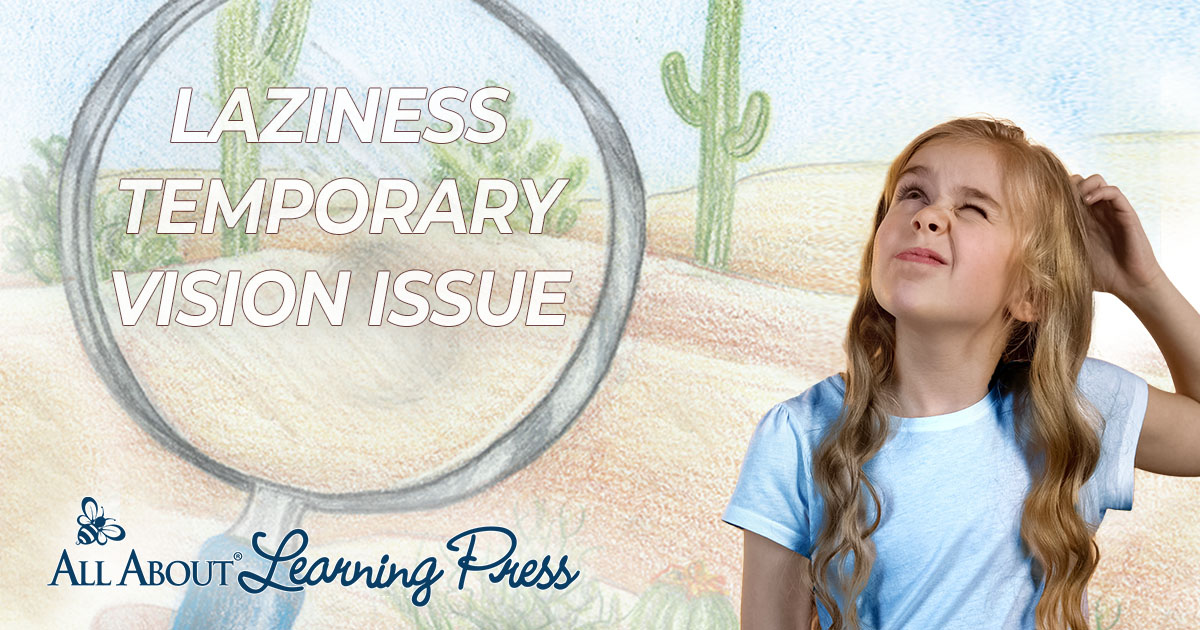
The term “dyslexia” was first used over 140 years ago, with the symptoms having been well documented even before that. It’s not new, and with the estimate being 5-10% of the population have dyslexia, you almost assuredly know people who are living with this challenge.
Yet, the public’s understanding of dyslexia is so full of misinformation and misconceptions. You may even be surprised to find what you thought you knew about it is not true.
First, start by reading What is Dyslexia? for the official definition of dyslexia and an explanation of the definition. Then, check out these common dyslexia myths and misconceptions to find out what dyslexia is not.
Dyslexia is not an intellectual disability.
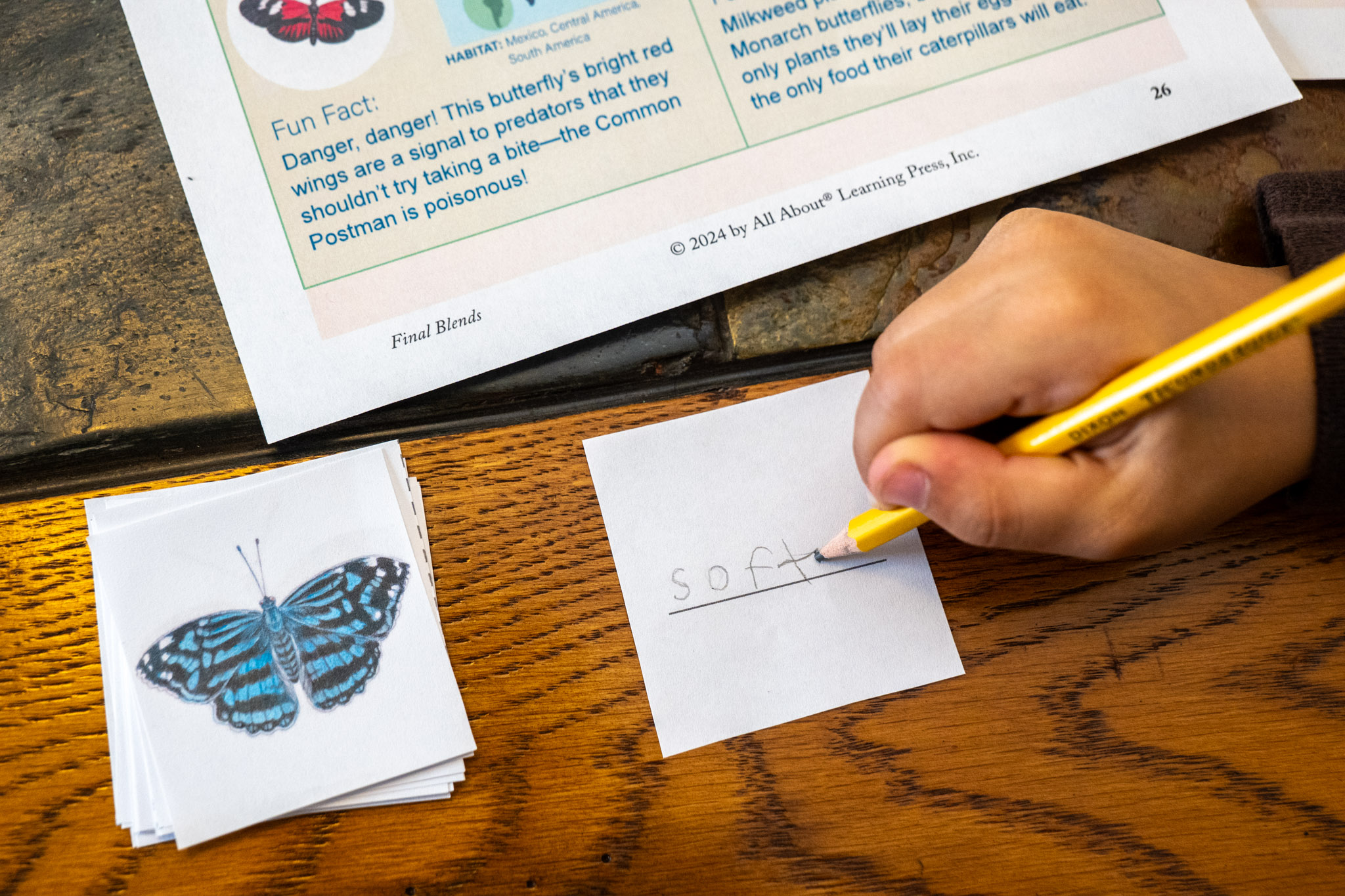
Dyslexia can occur in those with high, average, or low IQs. Struggling with reading and spelling does not mean a dyslexic student is “not smart” or not good at learning.
On the other hand, there is a myth that dyslexic people are gifted, have a high IQ, or must be good at art or other visual-spatial skills. While this is true for many individuals with dyslexia, it’s not true for many others, just like the population in general. There is no correlation between dyslexia and intelligence one way or the other.
Check out 30+ Important Things That Tests Can’t Measure.
Dyslexia is not a vision issue.
No, dyslexic children do not see words or letters backward, and getting vision therapy or using a special dyslexia font won’t make reading easier for them.
Mixing up the order of letters, writing letters backward, or even reading a whole word in reverse are possible symptoms of dyslexia, but this isn’t because they see things mirrored or differently than everyone else. It is not a “seeing” issue but a neurological one.
A vision processing disorder is not dyslexia, even though the observable effects of the two learning disabilities can look similar. Vision therapy will not improve spelling or reading in a dyslexic student unless he has a vision processing disorder in addition to dyslexia.
Research done with dyslexia fonts shows that they may reduce some types of errors, but they increase other types of errors in both dyslexic and non-dyslexic readers.1 Other research has also not shown improved reading with these special fonts.2, 3 This is because dyslexia is not a visual disability. It is a language-processing disability.
Here is our article on Vision Problems.
Dyslexia is not the only cause of reading and spelling struggles.
Not every struggling learner has dyslexia. There are a number of other learning disabilities that can influence learning to read in addition to dyslexia, including auditory processing disorder, ADHD, autism, vision processing disorder, poor working memory, and aphasia. Furthermore, the underlying cause for struggling to learn to read may not be a learning disability at all but could be a physical issue, such as a hearing or vision impairment.

Fortunately, the components that make All About Reading and All About Spelling so effective for homeschooling a dyslexic child make it effective for children with other learning disabilities as well. They’re multisensory, customizable, and mastery-based instruction can make all the difference!
Here are some articles on learning disabilities other than dyslexia:
Here are articles on effective components of All About Reading:
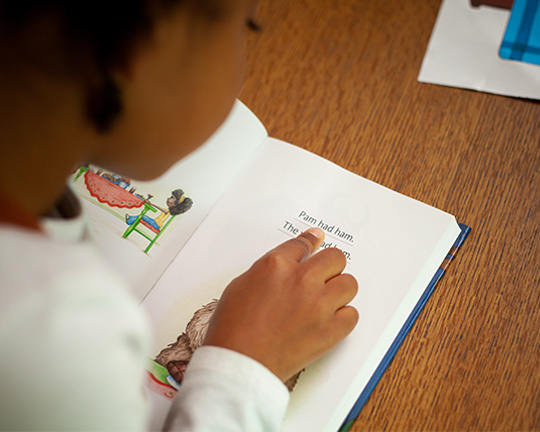
Dyslexia is not laziness or a lack of effort.
Students with dyslexia must work harder to make less progress than those without learning disabilities! Telling a child with dyslexia to “just try harder” is terribly discouraging because she is already giving it all she has.
For example, it is common for a child with dyslexia to struggle to sound out the same simple word multiple times on a single page. At the third or fourth time a child slowly and painfully sounds out “cat,” an adult may be tempted to say, “You know this! You already read this twice on this page.” But while it is easy for the adult to recognize a new word after reading it once, that may not happen with a dyslexic student. She just doesn’t recognize the word. It often takes students with dyslexia lots and lots of sounding words out again and again before they can start to develop word recognition and automaticity.
It is not the child’s lack of trying or focus that causes this. The cause is neurological in origin, stemming from differences in how her brain processes language.
Also, dyslexic children are working so hard that they tire more quickly than expected. Tired minds can’t process or retain information well, so keep to short lessons done consistently each day to allow for the best progress possible.
For more information, here are helpful articles on:
Dyslexia is not confined to reading and spelling only.
Dyslexia affects more than a person’s ability to read and spell easily. Those with dyslexia often struggle with knowing right from left and other things related to directionality. Following and remembering a complex series of steps can be very difficult for them, such as learning to tie shoes.
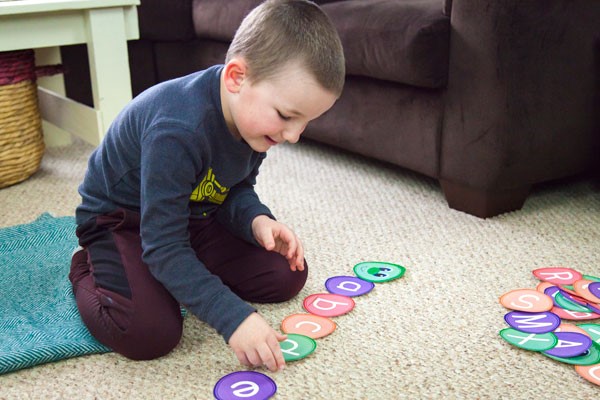
Memorization of facts without context can be especially challenging; learning multiplication facts, months of the year, or even the ABCs can take much longer than expected for these students. This, of course, affects school, but it comes into play elsewhere, such as when a child is expected to know his home address or parent’s phone number. The effects of dyslexia reach into so many areas.
See our articles on:
Dyslexia is not curable or outgrown.
There is no dietary supplement, brain training, or program that can cure dyslexia. It is a lifelong disability.
With appropriate help, most of the symptoms of dyslexia can be reduced to the point of not being noticeable at all. However, the underlying disability remains, often coming to the surface when the person is tired, stressed, or just distracted.
Many parents with a child struggling to learn to read will hear about so-and-so’s child who just suddenly started reading at 10 years old. The advice from such people seems to be to just give your child time; she’ll get it. But just think of all the years your child could have been reading if she were taught in a way she could learn. Everything is much more difficult when you have waited so long and now have a 12 or 14-year-old who is still struggling.
Take a look at All About Reading – A Proven Dyslexia Reading Program.
Dyslexia is not caused by any lack of parenting or teaching.
Please know that nothing you have done or failed to do caused your child’s dyslexia. Reading aloud and providing a language-rich home environment is so valuable in so many ways, and dyslexic children benefit as well. But reading to your child every day from birth will not prevent dyslexia nor ensure that your child learns to read easily.
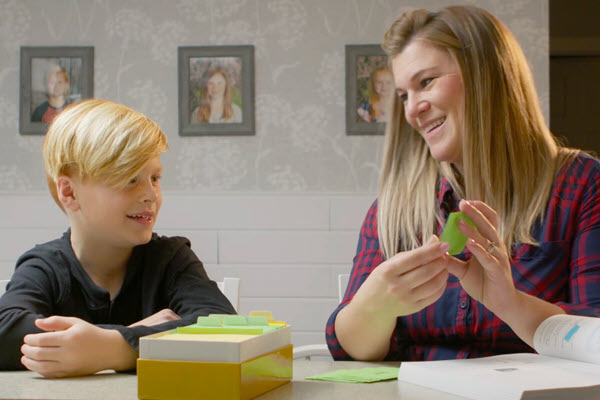
While some methods for teaching a child to read are definitely better than others, using the best program may not make learning to read suddenly easy and quick. Even with All About Reading and All About Spelling, many dyslexic students need more practice, more review, and just more time to become fluent and proficient. Our programs allow each child to move through the material at a pace that is just right for his needs.
Please see Dyslexia and Hope for one student’s story of slow progress with ultimate success in reading! For spelling success, see How AAS Saved My Son with Dyslexia!
So much misinformation abounds regarding the learning disability of dyslexia. Knowing what dyslexia is and is not is vital for everyone, as this disability affects so many people. Even if no one in your family faces this challenge, the next person you meet may.
Did finding out any of these myths or misconceptions surprise you? Are there any you have encountered?
Robin E. Williams
Robin E. Williams homeschooled her five children (four with dyslexia). She has counseled others on homeschooling for over 15 years and has worked in customer service for All About Learning Press for a decade.
_________________________
1Kuster, S.M., van Weerdenburg, M., Gompel, M. et al. Dyslexie font does not benefit reading in children with or without dyslexia. Ann. of Dyslexia 68, 25–42 (2018). https://doi.org/10.1007/s11881-017-0154-6
2Wery, J. J., & Diliberto, J. A. (2017). The effect of a specialized dyslexia font, OpenDyslexic, on reading rate and accuracy. Annals of dyslexia, 67(2), 114–127. https://doi.org/10.1007/s11881-016-0127-1
3Rello, Luz, & Baeza-Yates, Ricardo (2013). Good Fonts for Dyslexia. https://www.dyslexia-reading-well.com/support-files/italian_study_on_fonts_2013.pdf




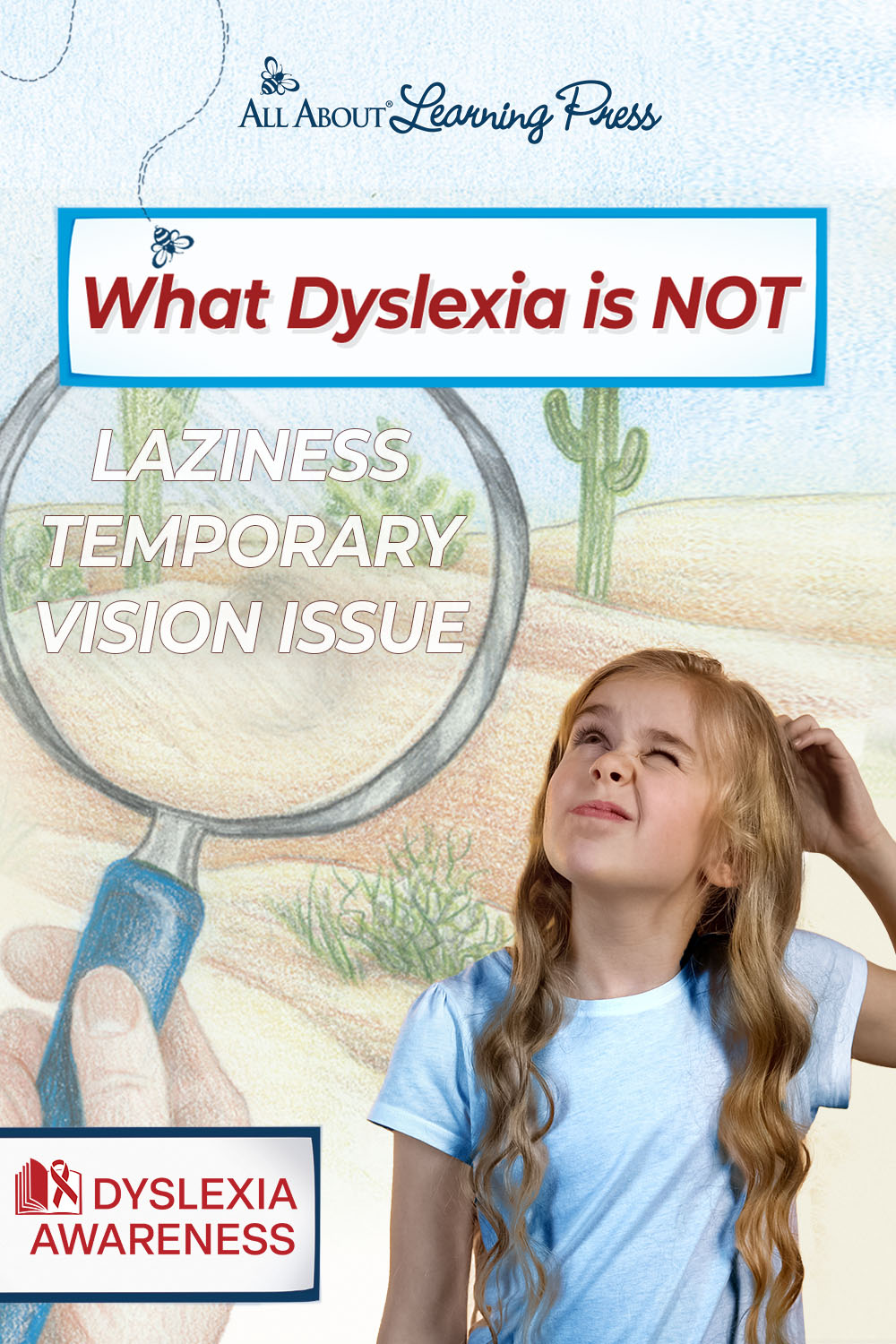






Mikayla
says:Interesting read! Very informative, not sure my son deals with dyslexia, but reading is still a struggle.
Robin
says: Customer ServiceI’m glad this was informative for you, Mikayla! Let me know if you have questions or would like to discuss your son’s struggles. You can reach me at support@allaboutlearningpress.com.
Erin
says:I am very thankful for this article. My daughter has not been officially diagnosed with dyslexia, but she is showing signs. This curriculum has helped so much!
Robin
says: Customer ServiceErin,
I’m so glad that All About Reading or All About Spelling have been helping!!! They definitely did for my kids too.
Tiffany
says:Great info!
Robin
says: Customer ServiceThank you, Tiffany!
Brittany DeRusha
says:I love this! Beautifully written and explains it all so well. Thank you for sharing your knowledge with us.
Robin
says: Customer ServiceOh, thank you, Brittany!
NJ
says:This is such a good read. Growing up I thought dyslexia was just mixing up letters
Robin
says: Customer ServiceI’m glad this was a good read for you, NJ! Thank you!
Sharalyn Anderson
says:Very interesting read!
Thank you for this!
Robin
says: Customer ServiceYou’re so welcome, Sharalyn! Thank you!
Janette Hamilton
says:Thanks much for clearing some of the misconceptions.
Robin
says: Customer ServiceYou’re welcome, Janette! Thank you!